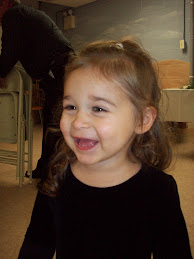Yesterday, researchers declared that two studies have led them to the discovery of certain genes that appear to be associated with autism. It is believed that this genetic link may be responsible for roughly 15% of cases of autism spectrum disorders.
This is a remarkable breakthrough, as it will hopefully allow scientists to learn more about the biological causes of autism and also to develop effective treatment options.
I do believe that some cases of autism are genetic (how can it not be when you have some families with multiple kids on the spectrum), but I also believe that there are environmental factors that "trigger" autism in some children (gluten/casein intolerance/allergy and other food sensitivities, vaccine ingredients, leaky gut syndrome, etc.). This is evident in the fact that many children with autism benefit greatly from various biomedical interventions, such as the GFCF diet (gluten-free, casein-free) and chelation (detoxification of metals from the body). I do hope that they continue to research the environmental causes as well.
This quote from Dr. Hakonarson, the leader of the research study, sums up my feelings on this subject:
"There are going to be many genes involved in causing autism," says Dr. Hakonarson. "In most cases, it’s likely that each gene contributes a small amount of risk, and interacts with other genes and environmental factors to trigger the onset of disease."
This is a remarkable breakthrough, as it will hopefully allow scientists to learn more about the biological causes of autism and also to develop effective treatment options.
I do believe that some cases of autism are genetic (how can it not be when you have some families with multiple kids on the spectrum), but I also believe that there are environmental factors that "trigger" autism in some children (gluten/casein intolerance/allergy and other food sensitivities, vaccine ingredients, leaky gut syndrome, etc.). This is evident in the fact that many children with autism benefit greatly from various biomedical interventions, such as the GFCF diet (gluten-free, casein-free) and chelation (detoxification of metals from the body). I do hope that they continue to research the environmental causes as well.
This quote from Dr. Hakonarson, the leader of the research study, sums up my feelings on this subject:
"There are going to be many genes involved in causing autism," says Dr. Hakonarson. "In most cases, it’s likely that each gene contributes a small amount of risk, and interacts with other genes and environmental factors to trigger the onset of disease."
Here is a video, followed by some related articles, regarding this recent discovery:
Risk of Autism Tied to Genes that Influence Brain Cell Connections
Autism Genes Discovered; Help Shape Connections Among Brain Cells
What the Autism Gene Finding Means for Parents








